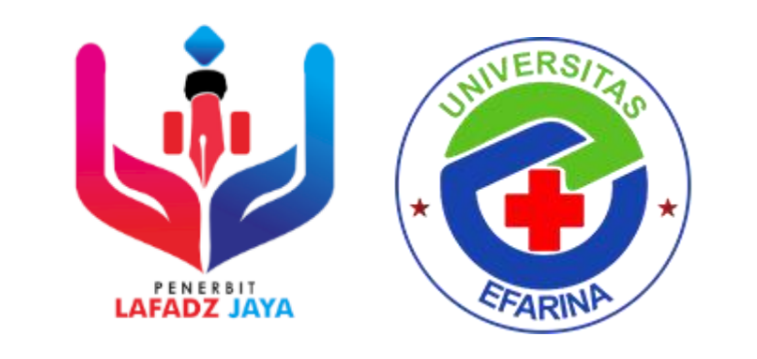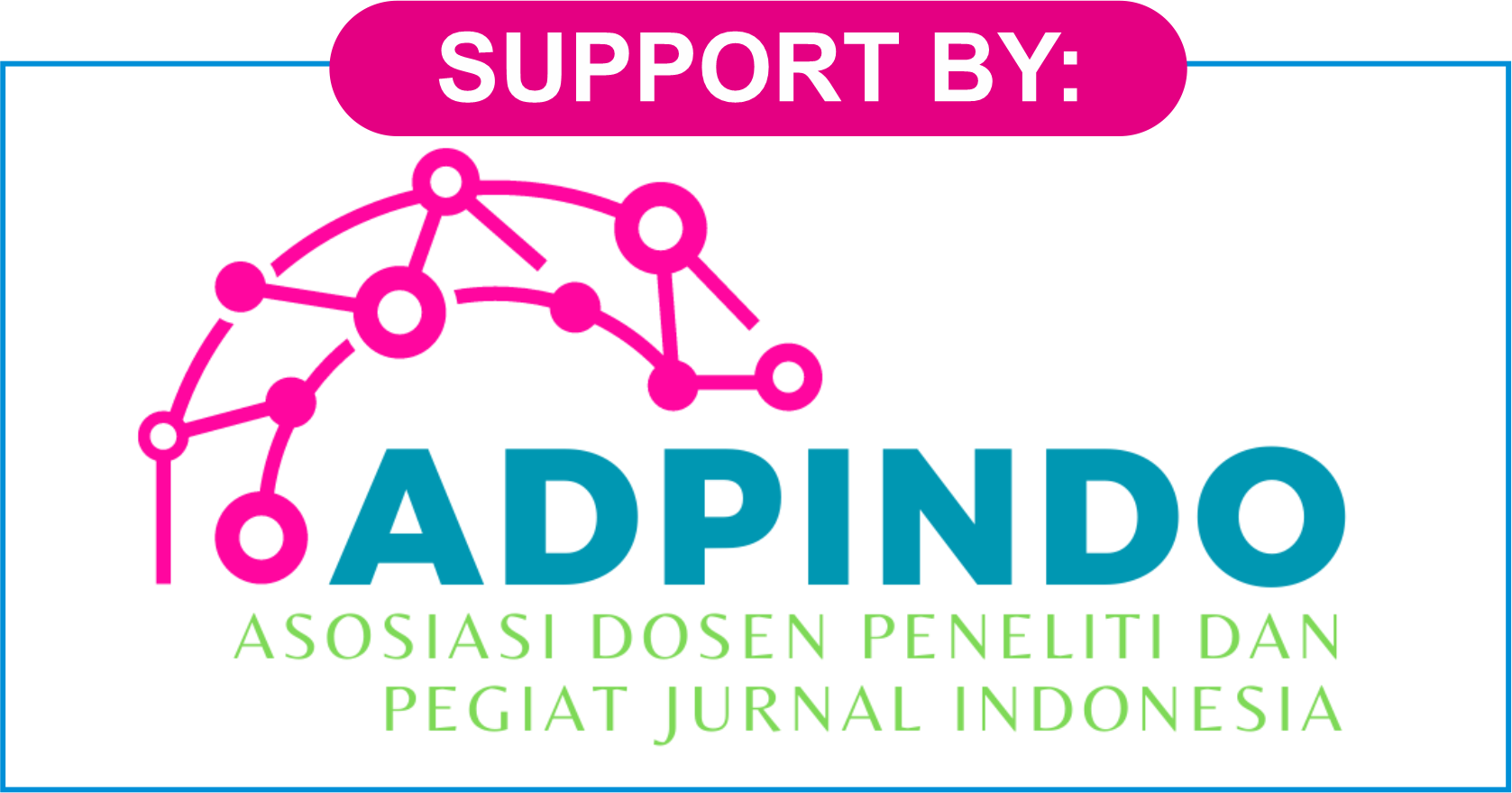PENGARUH PENGGUNAAN MEDIA SOSIAL (TIK TOK) BAGI KESEHATAN MENTAL REMAJA PADA MAHASISWA KESEHATAN MASYARAKAT UNIVERSITAS TEUKU
DOI:
https://doi.org/10.47353/sikontan.v2i4.1079Keywords:
Tik Tok, Mental Health, Adolescents, FKMAbstract
Social media is the media most often used in the current era of digitalization, one of which is Tik Tok. Tik Tok is a social media that makes it easy for users to interact to give likes and comments on videos and photos between fellow users. However, this affects the mental health of its users, especially students. The effects of using Tik Tok on mental health include anxiety, stres, lack of confidence and overthinking. This study aims to determine the effect of the use of social media (Tik Tok) on adolescent mental health in public health students at Teuku Umar University. This study used quantitative methods with simple linear regression analysis with 76 respondents. The results of this study indicate that there is no influence between the use of social media (Tik Tok) on the health of adolescents in public health students at Teuku Umar University with a probability of 0.766.
Downloads
References
Ayui Rizati, M. (2023). Pengguna TikTok terbanyak kedua di dunia. Data Indonesia.id. https://dataindonesia.id/digital/detail/peir-april-2023-pengguna-TikTok-indonesia-terbanyak-kedua-di-dunia
Bahnweig, E., & Omar, H. (2023). Effects of TikTok on adolescent mental health and well-being. Journal of Adolescent Health, 10(1).
Coyne, S. M., Rogers, A. A., Zurcher, J. D., Stockdale, L., Booth, M., Sarah, M., Adam, A., & Jessica, D. (2019). Does time spent using social media impact mental health? An eight-year longitudinal study and additional original publication citations. Computers in Human Behavior, 124, 1–9.
Dias, P., & Duarte, A. (2022). TikTok practices among teenagers in Portugal: A uses & gratifications approach. Journalism and Media, 3, 615–632. https://doi.org/10.3390/JOURNALMEDIA3040041
Falgoust, G., Winterlind, E., Moon, P., Parker, A., Zinzow, H., & Chalil Madathil, K. (2022). Applying the uses and gratifications theory to identify motivational factors behind young adults' participation in viral social media challenges on TikTok. Human Factors in Healthcare, 2, 100014. https://doi.org/10.1016/j.hfh.2022.100014
Huang, C. (2022). A meta-analysis of problematic social media use and mental health. International Journal of Social Psychiatry, 68(1), 12–33. https://doi.org/10.1177/0020764020978434
Kaur, S., Kaur, K., Aprajita, V., Verma, R., & Pankaj. (2022). Impact of social media on mental health of adolescents. Journal of Pharmaceutical Negative Results, 13(5), 779–783. https://doi.org/10.47750/pnr.2022.13.S05.121
Leidfray, T., Wani, F. J., & Lasuit, J. J. (2022). Pengaruh media sosial dalam mempererat interaksi antar keluarga di Desa Isandom Kecamatan Tombatui Timur Kabupaten Tombatui Timur Kabupaten Minasa Tenggara. Jurnal Ilmiah Society, 2(1), 2.
Mbwayo, A. W., Mathai, M., Khasakhala, L. I., Kuiria, M. W., & Vander Stoeip, A. (2020). Mental health in Kenyan schools: Teachers' perspectives. Global Social Welfare, 7(2), 155–163. https://doi.org/10.1007/s40609-019-00153-4
Martini, L. K. B., Suiardhika, I. N., & Deiwi, L. K. C. (2022). TikTok as a promotional media to influence consumer purchase decisions. Jurnal Aplikasi Manajemen, 20(1), 170–180. https://doi.org/10.21776/uib.jam.2022.020.01.17
Nadeiem, A. (2022). Understanding the TikTok addiction. New Horizons, 16(2), 25–50. https://doi.org/10.29270/NH.16.2(22).02
Oktarini, N. P. U., Deiwi, N. P. K., Puitra, M., et al. (2022). Analysis of the positive and negative impacts of using TikTok for Generation Z during the pandemic. Journal of Digital Learning and Public Engagement, 1(2). https://eijournal.catuispata.com/index.php/jdlp/article/view/167
Sari, P., Builantika, S. Z., Dwantari, T., & Rimonda, R. (2020). Effects of stress coping and emotion regulation on student academic stress. KONSELI: Jurnal Bimbingan dan Konseling (E-Journal), 7(1), 73–80.
Preitorius, C., McCashin, D., & Coyne, D. (2022). Mental health professionals as influencers on TikTok and Instagram: What role do they play in mental health literacy and help-seeking? Internet Interventions, 30(June), 100591. https://doi.org/10.1016/j.invent.2022.100591
Putri, W. S. R., Nuirwati, N., & S., M. B. (2020). Pengaruh media sosial terhadap perilaku remaja. Prosiding Penelitian dan Pengabdian Kepada Masyarakat, 3(1). https://doi.org/10.24198/jppm.v3i1.13625
Qiyang, Z., & Juing, H. (2019). Learning and sharing creative skills with short videos: A case study of user behavior in TikTok and Bilibili. In Proceedings of the International Association of Societies of Design Research Conference, Manchester, UK, September 2–5, 2019; pp. 25–50.
Rogers, A., & Pilgrim, D. (2021). A Sociology of Mental Health and Illness (6th ed.). London: McGraw-Hill.
Rosmalina, A., & Khaeiruinnisa, T. (2021). Penggunaan media sosial dalam kesehatan mental remaja. Prophetic: Professional, Empathy, Islamic Counseling Journal, 4(1), 49. https://doi.org/10.24235/propheitic.v4i1.8755
Scheir, S., & Wang, K. (2021). Explaining the success of social media with gratification niches: Motivations behind daytime, nighttime, and active use of TikTok in China. Computers in Human Behavior, 124, 106893. https://doi.org/10.1016/j.chb.2021.106893
Smith, T., & Short, A. (2022). Needs affordance as a key factor in likelihood of problematic social media use: Validation, latent profile analysis, and comparison of TikTok and Facebook problematic use measures. Addictive Behaviors, 129, 107259. https://doi.org/10.1016/j.addbeh.2022.107259
Downloads
Published
How to Cite
Issue
Section
License
Copyright (c) 2024 Nabilla Widiyastuti, Ungsi Maranatha Padang, Melly Melly, Rossi Rismika, Rubi Rimonda

This work is licensed under a Creative Commons Attribution 4.0 International License.











